Hiroshima, Japan Feb. 22 Sat 9:17AM
The Floating Shrine
Itsukushima Shrine on Miyajima (literally, "shrine island") is perhaps the most famous shrine in Japan, known for its "floating" torii gate. Miyajima Island has long been a holy site in shinto, and Itsukushima Shrine was built in the 12th century.
The shrine, and the torii gate, are built over water. This is unique to other shrines in Japan. During high tide, the torii gate and the shrine seem to be floating in the water. The shrine is more than just the torii gate, and actually consists of a prayer hall, a main hall, and even a Noh theater stage. All of the different buildings of the shrine are connected by boardwalks above the sea.
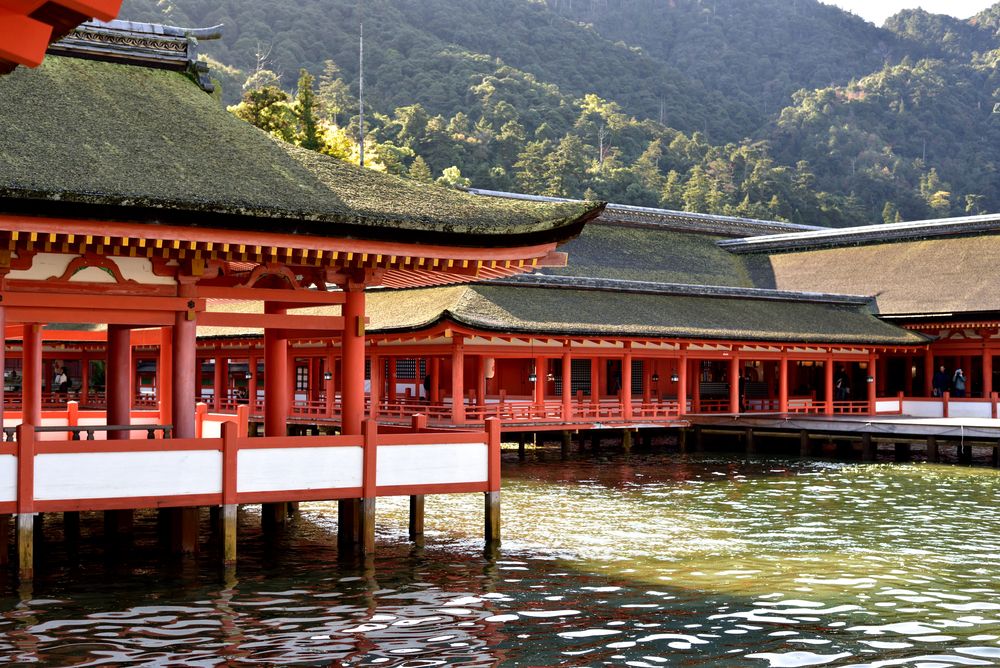
Why was it built on the sea?
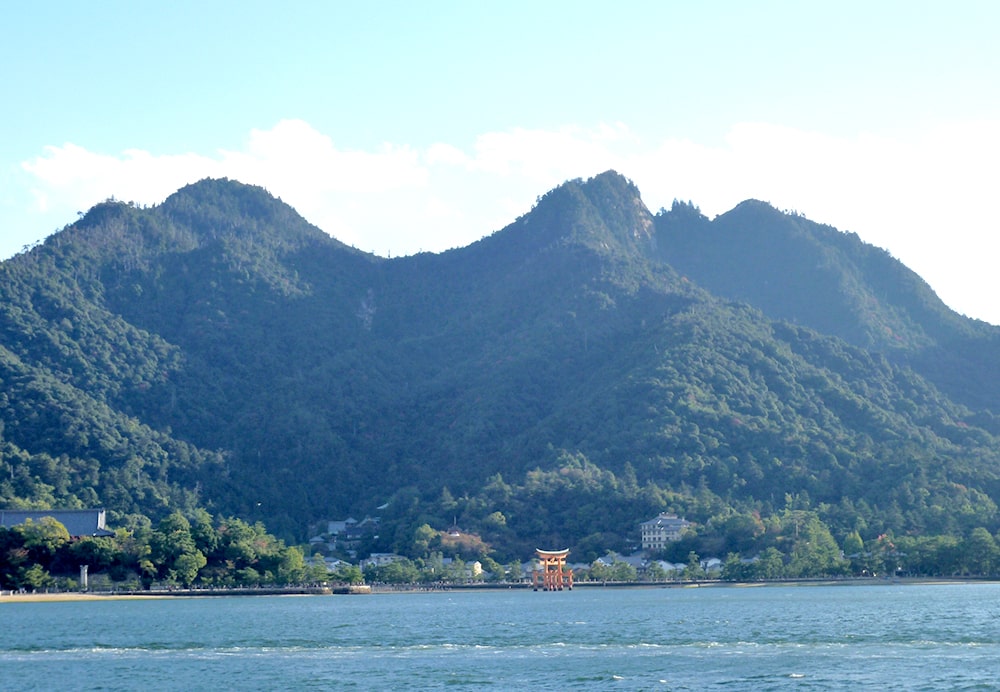 The reason for building the shrine on the sea can be attributed to the belief that Miyajima was inhabited by various deities, and as such, it was considered improper to cut trees or alter the natural landscape of the island. To avoid any harm to the land, the torii gate of Itsukushima Shrine was erected on the sea.
The reason for building the shrine on the sea can be attributed to the belief that Miyajima was inhabited by various deities, and as such, it was considered improper to cut trees or alter the natural landscape of the island. To avoid any harm to the land, the torii gate of Itsukushima Shrine was erected on the sea.
Route to Worship
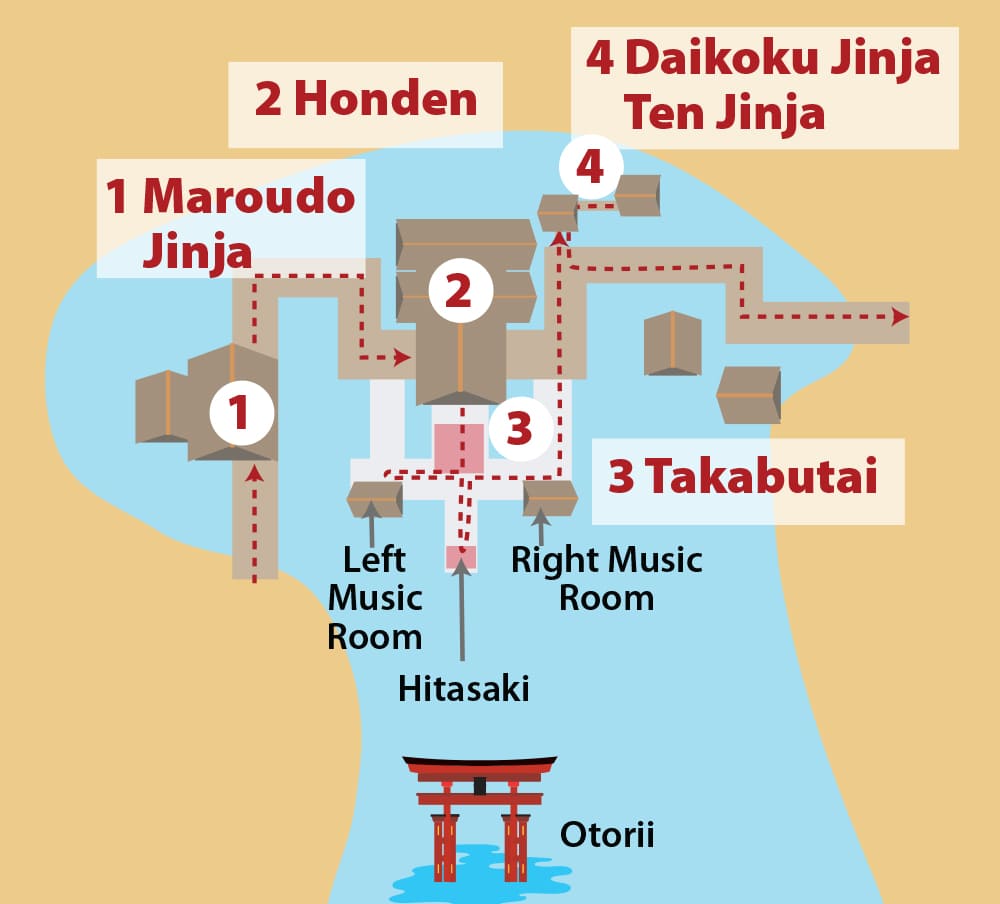
1. Maroudo Shrine
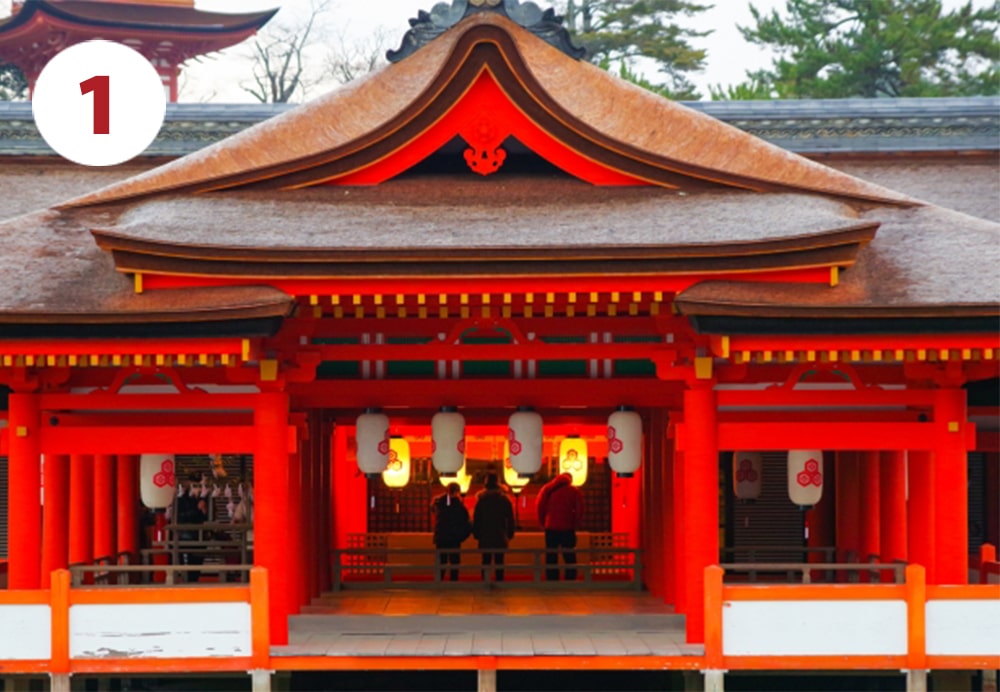 The first worship hall is located at Maroudo Shrine. The MaroudoShrine enshrines a deity called Ogami. This deity was born from Amaterasu and Susanoo in Japanese mythology, and one of the descendants of this Okami is Emperor Jinmu, the ancestral deity of the current emperor.
The first worship hall is located at Maroudo Shrine. The MaroudoShrine enshrines a deity called Ogami. This deity was born from Amaterasu and Susanoo in Japanese mythology, and one of the descendants of this Okami is Emperor Jinmu, the ancestral deity of the current emperor.
2. Itsukushima Shrine Honden
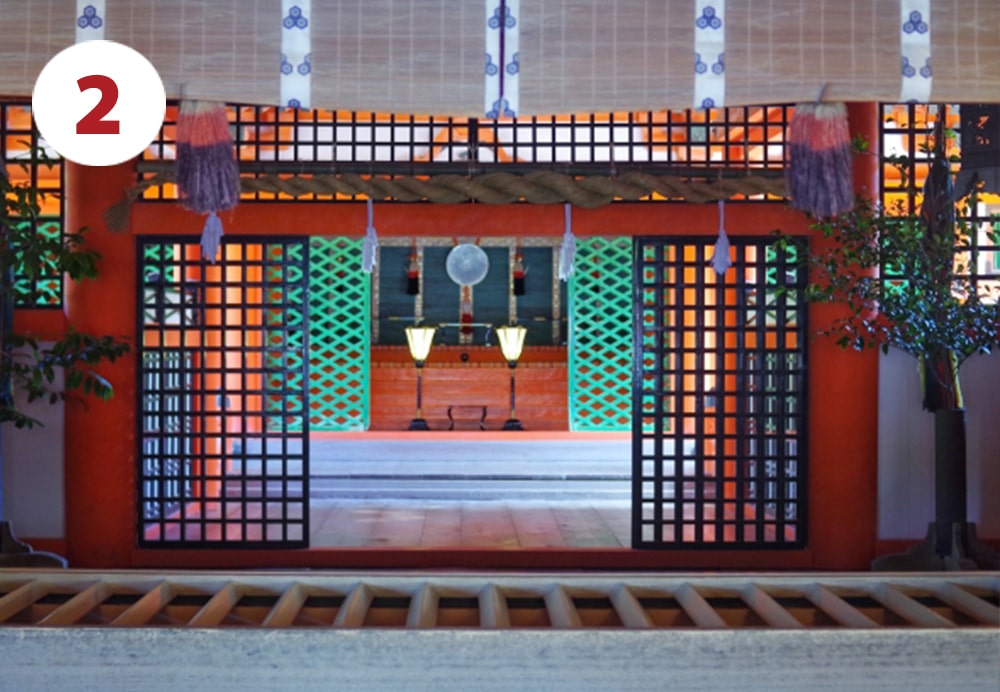 It consists of four halls of worship, including one of the largest in Japan. It enshrines the three goddesses, Ichikishimahime no Mikoto, Tagorihime no Mikoto, and Tagitsuhime no Mikoto. Here, visitors can receive omamori (amulets) and red seal books.
It consists of four halls of worship, including one of the largest in Japan. It enshrines the three goddesses, Ichikishimahime no Mikoto, Tagorihime no Mikoto, and Tagitsuhime no Mikoto. Here, visitors can receive omamori (amulets) and red seal books.
3. Takabutai (Bugaku Stage)
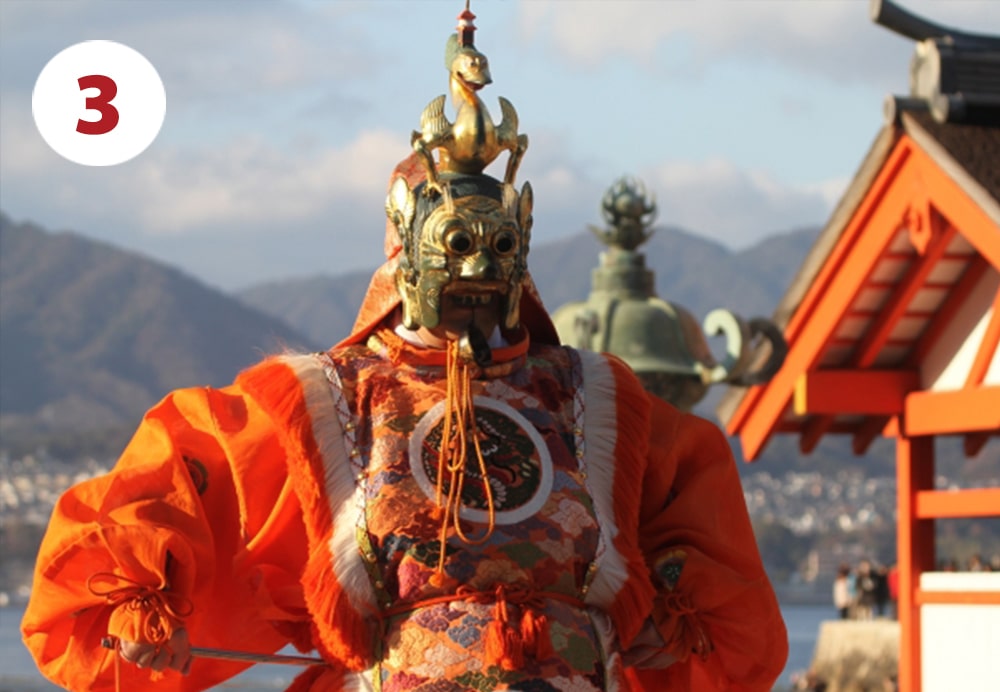 Bugaku (a traditional dance) is performed here and musical instruments are played in the music rooms on either side. It is performed about 10 times a year after festivals. Hitasaki is located beyond the stage and is a good spot for taking pictures of the Otorii with the sea in the background.
Bugaku (a traditional dance) is performed here and musical instruments are played in the music rooms on either side. It is performed about 10 times a year after festivals. Hitasaki is located beyond the stage and is a good spot for taking pictures of the Otorii with the sea in the background.
4. Daikoku Shrine / Ten Shrine
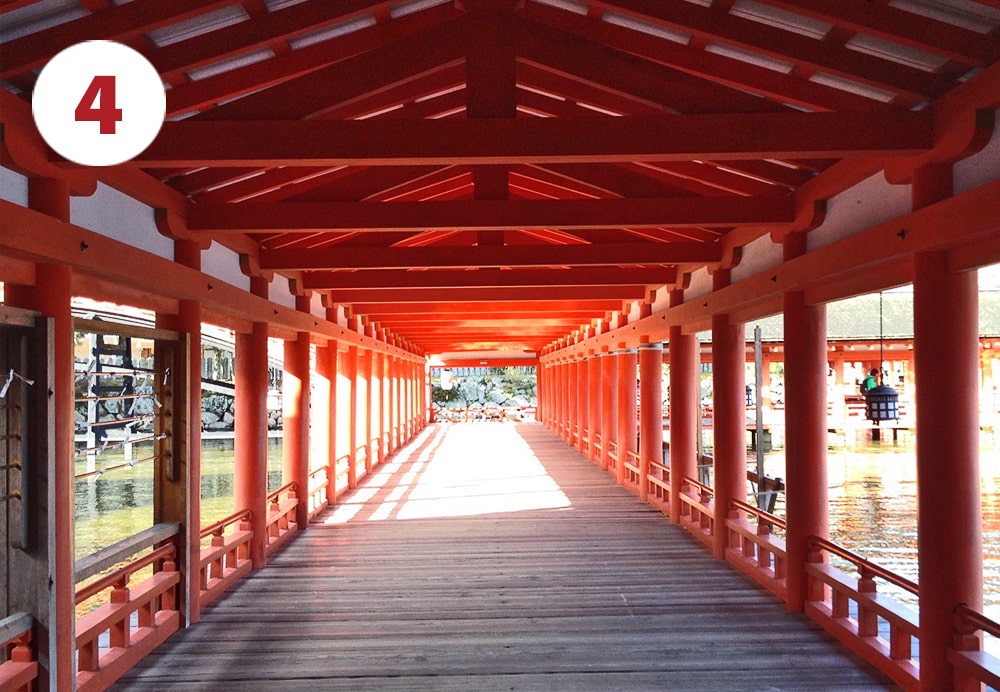 Okuninushinomikoto of the Daikoku Shrine is said to be the god of relationships, which not only means marriage, but also friends and business relationships as well.
Okuninushinomikoto of the Daikoku Shrine is said to be the god of relationships, which not only means marriage, but also friends and business relationships as well.
Ten Shrine is dedicated to Sugawara Michizane, the god of learning.
Otorii
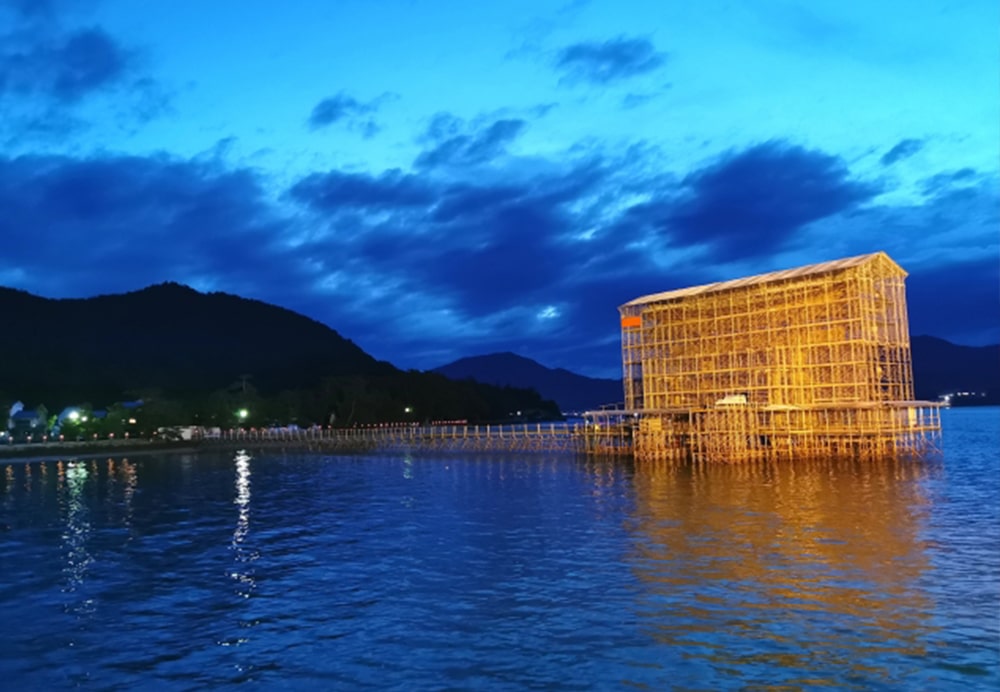
Last year, after being worked on for three and a half years, the Otorii was renovated from the damages done by seawater and termites. It took a long time for the craftsmen because of the severe damage, but they were able to restore the bright red color using their special techniques. These craftsmen are keeping the tradition alive.
The Otorii gate itself is in the Seto Inland Sea
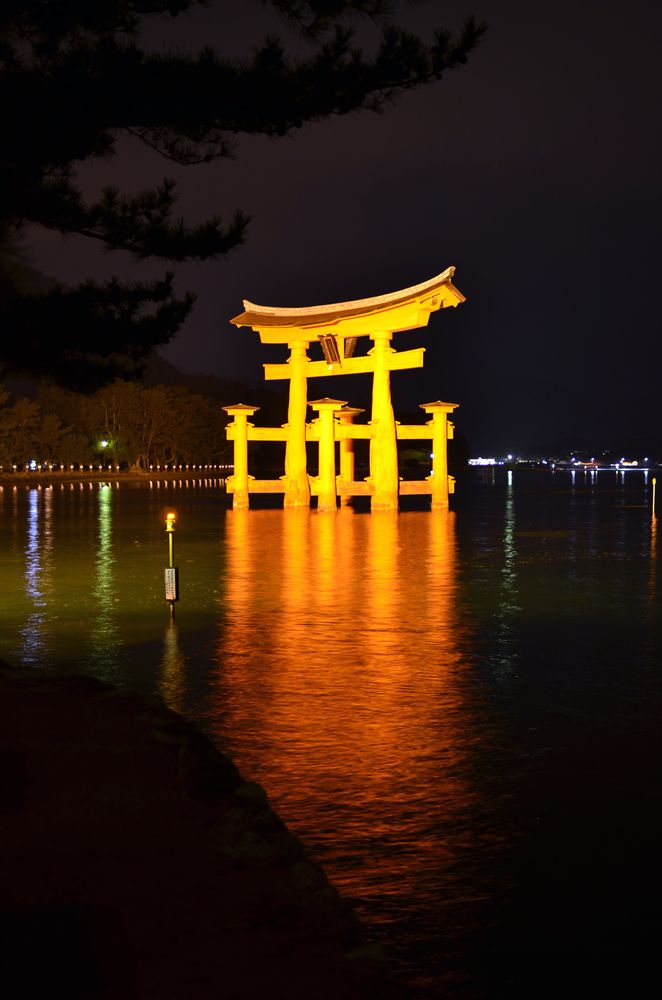
The shrine is located in a small inlet of Miyajima Island, while the torii gate itself is in the Seto Inland Sea, but can be approached on foot during low tide. While not as picturesque as the seemingly-floating torii gate and shrine during high-tide, visitors to the shrine can approach the torii up close. During high tide, visitors can take boat rides through the torii gate and along the bay.
Although the shrine cannot be entered after sunset, in the evening, the shrine is illuminated until 11 pm, which is impossibly beautiful. Visitors staying in ryokan, or Japanese-style inns on the island, particularly enjoy strolling along the pier at night time to view the shrine.
Watch out for deers

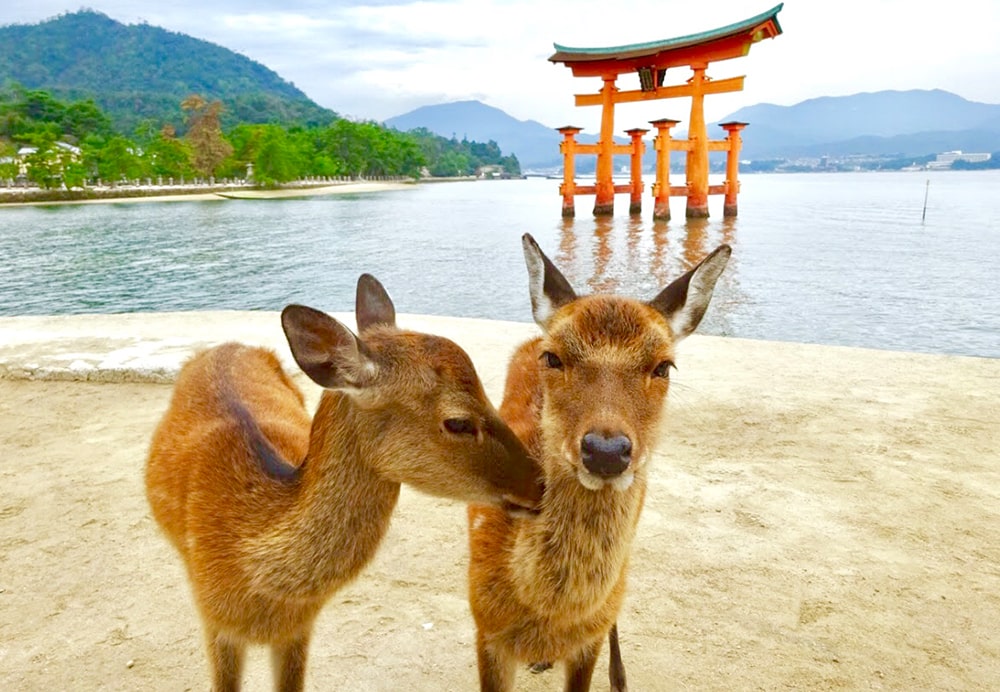
HIS staff visited Itsukushima Shrine and took a break with some delicious grilled rice balls. But guess what happened? A sneaky deer crept up from behind and snatched the rice ball right out of her hand! Everyone around was stunned and couldn't believe what they had just witnessed. It was a surprising and adorable moment. So, if you plan on visiting the shrine, be sure to watch out for these little rascals!
